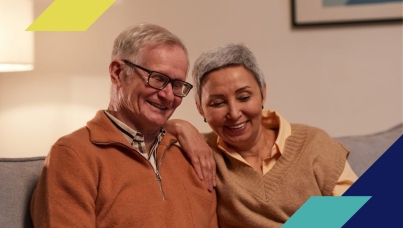Shoppers Want to ‘Do Good’ But Brands Are Missing the Mark
Survey Highlights:
- 3 out of 4 consumers (75%) view themselves as “conscious consumers” yet only 38% truly behave consciously
- Canadians vs. Americans: Americans shop their values at a higher rate
- Immigrants in Canada are almost twice as likely to be conscious consumers
- Science-based claims like “certified organic” and “carbon neutral” do not resonate
- Parenthood: Adults with children tend to exhibit higher levels of conscious consumerism
Toronto and New York, April 22, 2025 – A new report based on a survey of consumers in the US and Canada highlights a significant gap between consumers’ desire for sustainable products and their actual purchasing behaviour. Despite nearly 76% of consumers claiming they want to support sustainable brands, conscious consumerism only accounts for 38% of purchases, pointing to the "say-do gap" that businesses must address to drive growth in the sustainable economy.
The Conscious Consumer Report, conducted by Public Inc with support from Ipsos, identifies confusing sustainability claims as the primary barrier to conscious consumerism - shopping according to one’s beliefs and values. Nearly 49% of all consumers have abandoned products due to unclear or misleading sustainability messages—a number that rises to a staggering 87% among the most committed conscious consumers.
"Brands are falling short," said Phillip Haid, CEO and Founder of Public Inc. "To drive conscious consumerism, we need to simplify sustainability claims and focus on immediate, personal benefits, rather than overwhelming consumers with distant, aspirational messages. Despite claims that 'DEI is dead' amid political pushback, consumers continue to make choices based on their values. The future of business lies in balancing profit with purpose. Authenticity and responsibility resonate with consumers, and this shift is not just ethical—it's strategic. Companies that align with societal values and imagine a better world will thrive."
The study segments consumers into five distinct groups based on their frequency of values-based purchases, from the Sustainability Stewards (9%) who purchase sustainably 80-100% of the time to the Apathetic Actors (31%) who never shop based on sustainability.
The findings suggest that all consumer segments—regardless of their purchasing frequency—can be encouraged to buy more sustainably by simplifying claims and aligning products with their immediate personal needs.
Key Findings:
- Implications for Consumer Boycotts? Over half (55%) of respondents indicate they are likely to change their purchase behaviors for social or ethical reasons within the next year, data we are seeing play out in real-time with boycotts in North America.
- Marketers Are Getting it Wrong - Confusing Claims Deter Purchases: Nearly 49% of consumers — and 87% of highly conscious consumers — abandon products prior to purchase due to unclear sustainability claims.
- The "Say-Do" Gap: While 76% of consumers identify as conscious shoppers, values-driven purchases account for only 38% of their buying decisions.
- Present-Day Benefits Drive Action: Consumers respond more to immediate, personal benefits (e.g., durability, health) than abstract future impacts.
Strategic Recommendations for Marketers: As part of the report launch, Public Inc. provides takeaways for brands that are working towards closing the say-do gap. By adapting to these insights, brands can drive growth in the sustainable economy and bridge the gap between conscious intent and actual purchase behavior.
- Simplify Impact Claims Sustainability Claims: Use clear, simple language and focus on direct consumer benefits (e.g., "reduce your energy costs" instead of "energy-efficient").
- Emphasize Immediate Benefits: Focus on how sustainability improves consumers' lives today, rather than promising long-term benefits.
- Appeal to Personal Needs: Consumers are motivated by impact claims that meet their immediate needs, not abstract collective goals.
- Leverage Durability and Performance: Link impact claims to product effectiveness, safety, and durability.
- Don’t Ignore the Apathetic Actor: While they are not the primary target, this segment responds to claims around local sourcing and clean ingredients.
“Our data shows that consumers respond better to clear, straightforward language that emphasizes how sustainable products improve their lives today, not just in the future,” said Caleigh Farrell, Vice President of Research, Public Inc. “If we, as marketers and business leaders, keep ignoring the reality that consumers act in their own self-interest, we will stall the growth of the sustainable economy—right when we need it most to tackle the staggering crises facing humanity.”
The full report provides actionable insights for businesses offering sustainable products, as well as those balancing sustainable and conventional brands. Companies looking to close the "say-do gap" are encouraged to reevaluate their messaging and align sustainability claims with consumer values and everyday needs.
Methodology
The report is based on a 2024 survey conducted by Ipsos with over 3,000 consumers in the US and Canada. The survey, which took place from July 11-24, 2024, was nationally representative, including 1,510 consumers in the US and 1,508 in Canada. Ipsos Bayes Net (IBN) analysis and MaxDiff scaling were used to derive insights.
About Public Inc.
Public Inc. is an independent creative impact agency helping courageous companies across North America put purpose at the top of the business agenda since 2008. A certified B Corp, Public Inc. believes that companies everywhere can – and should – be a greater force for good in the world and that everyone can #ProfitWithPurpose.
About Ipsos
Ipsos is one of the largest market research and polling companies globally, operating in 90 markets and employing nearly 20,000 people.
Our passionately curious research professionals, analysts and scientists have built unique multi-specialist capabilities that provide true understanding and powerful insights into the actions, opinions and motivations of citizens, consumers, patients, customers or employees. Our 75 business solutions are based on primary data from our surveys, social media monitoring, and qualitative or observational techniques.
“Game Changers” – our tagline – summarizes our ambition to help our 5,000 clients navigate with confidence our rapidly changing world. Founded in France in 1975, Ipsos has been listed on the Euronext Paris since July 1, 1999. The company is part of the SBF 120, Mid-60 indices, STOXX Europe 600 and is eligible for the Deferred Settlement Service (SRD).
http://www.ipsos.com/



